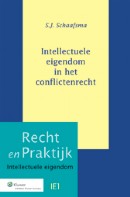Parrish on Duplicative Foreign Litigation
Austen L. Parrish, who teaches at Southwestern Law School, has published Duplicative Foreign Litigation in the last issue of the George Washington Law Review. The abstract reads:
What should a court do when a lawsuit involving the same parties and the same issues is already pending in the court of another country? With the growth of transnational litigation, the issue of reactive, duplicative proceedings—and the waste inherent in such duplication—becomes a more common problem. The future does not promise change. In a modern, globalized world, litigants are increasingly tempted to forum shop among countries to find courts and law more favorably inclined to them than their opponents.
The federal courts, however, do not yet have a coherent response to the problem. They apply at least three different approaches when deciding whether to stay or dismiss U.S. litigation in the face of a first-filed foreign proceeding. All three approaches, however, are undertheorized, fail to account for the costs of duplicative actions, and uncritically assume that domestic theory applies with equal force in the international context. Relying on domestic abstention principles, courts routinely refuse to stay duplicative actions believing that doing so would constitute an abdication of their “unflagging obligation” to exercise jurisdiction. The academic community in turn has yet to give the issue sustained attention, and a dearth of scholarship addresses the problem.
This Article offers a different way of thinking about the problem of duplicative foreign litigation. After describing the shortcomings of current approaches, it argues that when courts consider stay requests they must account for the breadth of their increasingly extraterritorial jurisdictional assertions. The Article concludes that courts should adopt a modified lis pendens principle and reverse the current presumption. Absent exceptional circumstances, courts should usually stay duplicative litigation so long as the party seeking the stay can establish that the first-filed foreign action has jurisdiction under U.S. jurisdictional principles. This approach—pragmatic in its orientation, yet also more theoretically coherent than current law—would help avoid the wastes inherent in duplicative litigation, and would better serve long-term U.S. interests.
The article can be downloaded here.

 The
The  The Faculty of law of the University of Clermont-Ferrand will host a
The Faculty of law of the University of Clermont-Ferrand will host a 